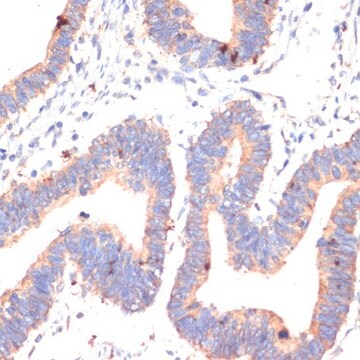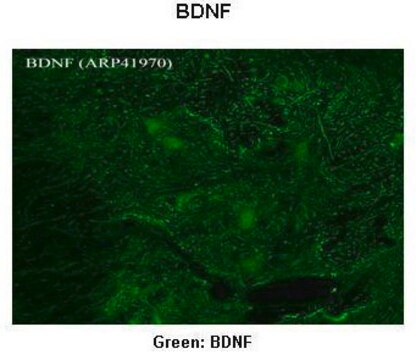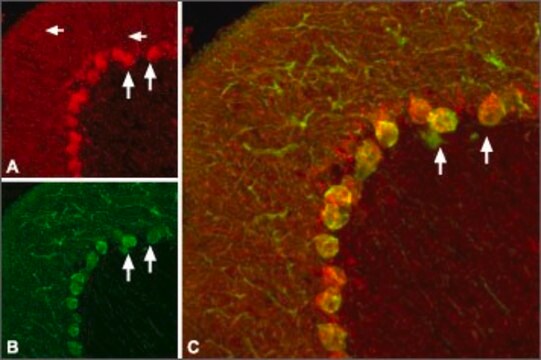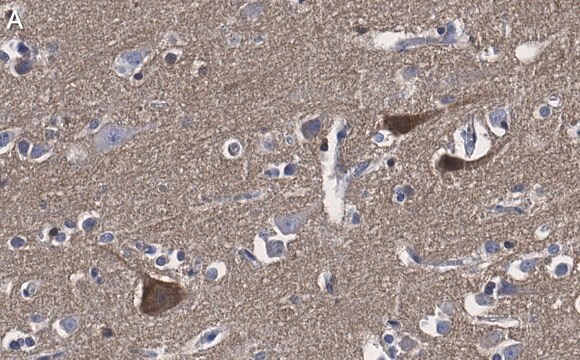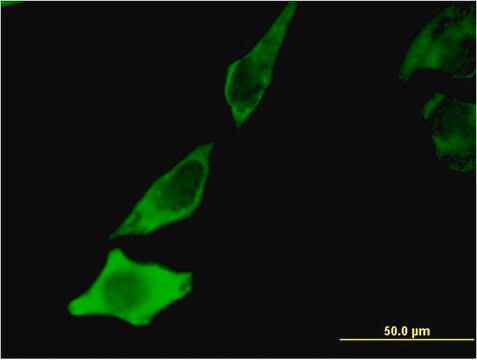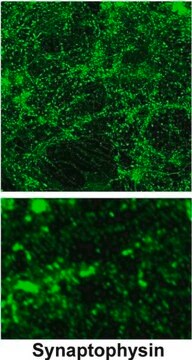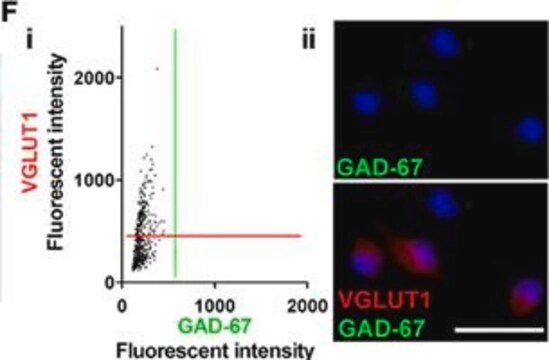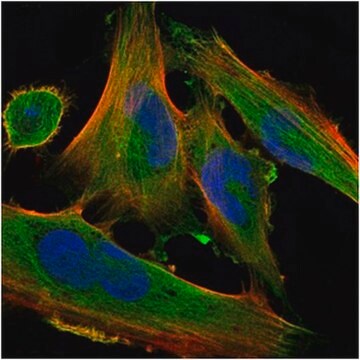SAB4200744
Anti-BDNF antibody, Mouse Monoclonal
clone BDNF129-13, purified from hybridoma cell culture
Sinônimo(s):
Anti-Abrineurin, Anti-Brain-derived neurotrophic factor
About This Item
Produtos recomendados
fonte biológica
mouse
Nível de qualidade
conjugado
unconjugated
forma do anticorpo
purified from hybridoma cell culture
tipo de produto de anticorpo
primary antibodies
clone
BDNF129-13, monoclonal
Formulário
buffered aqueous solution
peso molecular
~12 kDa
reatividade de espécies
human
concentração
~1.0 mg/mL
técnica(s)
immunoblotting: 2-4 μg/mL using lysate of human HEK-293T cells over-expressing human BDNF protein
immunocytochemistry: suitable
immunohistochemistry: 20-40 μg/mL using pronase retrieved formalin-fixed, paraffin-embedded human cerebellum sections
immunoprecipitation (IP): 10-20 μg/mL using lysate of human HEK-293T cells over-expressing human BDNF protein
Isotipo
IgG2b
nº de adesão UniProt
Condições de expedição
dry ice
temperatura de armazenamento
−20°C
modificação pós-traducional do alvo
unmodified
Informações sobre genes
human ... BDNF(627)
Descrição geral
Imunogênio
Aplicação
- immunoblotting
- immunohistochemistry
- immunoprecipitation
- immunocytochemistry
Ações bioquímicas/fisiológicas
forma física
Não está encontrando o produto certo?
Experimente o nosso Ferramenta de seleção de produtos.
Código de classe de armazenamento
10 - Combustible liquids
Ponto de fulgor (°F)
Not applicable
Ponto de fulgor (°C)
Not applicable
Escolha uma das versões mais recentes:
Certificados de análise (COA)
Não está vendo a versão correta?
Se precisar de uma versão específica, você pode procurar um certificado específico pelo número do lote ou da remessa.
Já possui este produto?
Encontre a documentação dos produtos que você adquiriu recentemente na biblioteca de documentos.
Nossa equipe de cientistas tem experiência em todas as áreas de pesquisa, incluindo Life Sciences, ciência de materiais, síntese química, cromatografia, química analítica e muitas outras.
Entre em contato com a assistência técnica